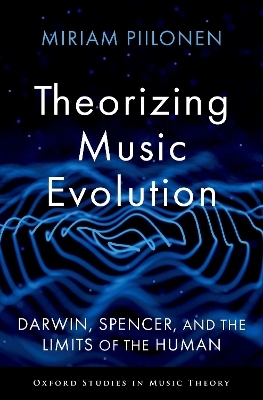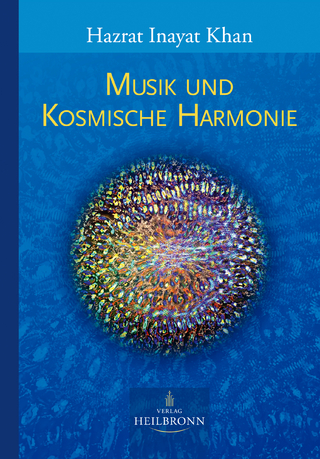
Theorizing Music Evolution
Oxford University Press Inc (Verlag)
978-0-19-769528-9 (ISBN)
In this book, Piilonen delves into how historical evolutionists, in particular Darwin and Spencer, developed and applied a concept of music that served as a boundary-drawing device, used to trace or obscure the conceptual borders between human and animal. She takes as primary texts the early evolutionary treatises that double as theoretical accounts of music's origins. For Darwin, music served as a kind of proto-language common to humans and animals alike; he heard the songs of birds and the chirps of mice as musical, as articulated in texts such as The Descent of Man (1871) and The Expression of the Emotions in Man and Animals (1872). Spencer, on the other hand, viewed music as a specifically human stage of evolutionary advance, beyond language acquisition, as outlined in his essay, "The Origin and Function of Music" (1857). These competing views established radically different perspectives on the origin and function of music in human cultural expression, while at the same time being mutually constitutive of one another.
A ground-breaking contribution to music theory and histories of science, Theorizing Music Evolution turns to music evolution with an eye toward disrupting and intervening in these questions as they recur in the present.
Miriam Piilonen is Assistant Professor of Music Theory at the University of Massachusetts Amherst. Her research has appeared in Critical Inquiry and Empirical Musicology Review, and her chapter "Music Theory and Social Media" appears in The Oxford Handbook of Public Music Theory.
List of Figures
Introduction - Music and Evolution Revisited
The Revival of Evolutionary Musicology
Historicizing Music as a Deconstructed Thing
Evolutionary Claims are Ontological Claims
Book Structure and Chapter Summaries
Chapter 1 - Herbert Spencer Writes to Alfred Tennyson
Spencer the Evolutionist
Spencer Writes to Charles Darwin
The Shifting Terrain of Victorian Evolution Theories
Spencer's Earworm
Chapter 2 - Charles Darwin VS. Herbert Spencer on the Origins of Music
Music in Darwin's Early Notebooks and The Descent of Man
Music in Darwin's The Expression of the Emotions in Man and Animals
Spencer's Theory of Music Perception
Spencer and Darwin's Entwined Theories of Music
A Debate Without a Winner
Chapter 3 - Sound Symbolism in Spencer's Evolutionary Thought
Spencer's Evolutionary Theory of Music - Basic Theses
Sound Symbolism as Imperial Metaphor in Spencer's Evolutionary Thought
Music and Language as Constructed through Theories of Origins
Plato's Contribution: Centering Sound Symbolism
Implications and Consequences of Spencer's Sound Symbolism
Evolutionary Voices and Non-Linear Histories
Chapter 4 - The Darwinian Musical Hypothesis
What is the Darwinian Musical Hypothesis?
Antoinette Brown Blackwell's Feminist Critique of Darwin
Problems with Applying Darwin's Theory of Sexual Selection
Darwinian Musical Aesthetics
Against Adaptationism
Chapter 5 - Edmund Gurney's Darwinian Music Formalism
Gurney's Evolutionary Music Theory as Idealized Model
Gurney, Darwin, and Association
Problematizing Gurnian Formalism
Conclusion - Post-Darwinian Music Theory
A Personal Postscript
Acknowledgements
References
Index
| Erscheinungsdatum | 17.01.2024 |
|---|---|
| Reihe/Serie | Oxford Studies in Music Theory |
| Zusatzinfo | 8 b/w figures |
| Verlagsort | New York |
| Sprache | englisch |
| Maße | 226 x 163 mm |
| Gewicht | 386 g |
| Themenwelt | Kunst / Musik / Theater ► Musik ► Musiktheorie / Musiklehre |
| Naturwissenschaften ► Biologie | |
| ISBN-10 | 0-19-769528-0 / 0197695280 |
| ISBN-13 | 978-0-19-769528-9 / 9780197695289 |
| Zustand | Neuware |
| Informationen gemäß Produktsicherheitsverordnung (GPSR) | |
| Haben Sie eine Frage zum Produkt? |
aus dem Bereich


